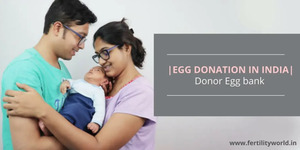Exploring Egg Donation in India: A Comprehensive Guide
Body
Egg donation is a reproductive option that has provided hope and opportunity to individuals and couples struggling with infertility around the world. In India, egg donation has become increasingly popular as a means of achieving parenthood. In this blog, we’ll delve into what egg donation in India entails, how it works, and what prospective egg donor price and recipients need to know before considering this option.
Understanding Egg Donation:
Egg donation involves the process of a woman (the donor) providing her eggs to be used by another woman (the recipient) who is unable to conceive with her own eggs. This method is often utilized by women who have experienced premature ovarian failure, diminished ovarian reserve, or genetic conditions that could be passed on to offspring.
The Process of Egg Donation in India:
Donor Screening and Selection:
Explanation: Prospective egg donors in India undergo a rigorous screening process that includes medical, genetic, and psychological evaluations. This ensures that they are healthy, fertile, and suitable candidates for egg donation. Donors may be anonymous or known to the recipient, depending on individual preferences and clinic policies.
Ovarian Stimulation and Egg Retrieval:
Explanation: Once a donor is selected and cleared for donation, she undergoes ovarian stimulation using fertility medications to produce multiple eggs. Throughout this process, the donor’s response to medication is closely monitored through blood tests and ultrasound scans. Once the eggs are deemed mature, they are retrieved via a minor surgical procedure called egg retrieval, which is performed under sedation.
Fertilization and Embryo Transfer:
Explanation: The retrieved eggs are fertilized with the recipient’s partner’s sperm or donor sperm in the laboratory. The resulting embryos are then cultured for several days before one or more embryos are transferred into the recipient’s uterus during a carefully timed procedure.
Pregnancy and Follow-Up Care:
Explanation: Following embryo transfer, the recipient undergoes a waiting period to determine if pregnancy has been achieved. If successful, the recipient receives ongoing prenatal care to monitor the progress of the pregnancy. In cases where multiple embryos are transferred, the risk of multiple pregnancies is carefully managed to ensure the health and safety of both the mother and babies.
Legal and Ethical Considerations:
In India, egg donation is governed by regulations and guidelines set forth by the Indian Council of Medical Research (ICMR). These regulations aim to protect the rights of both donors and recipients and ensure ethical practices throughout the process. It’s important for both parties to understand their rights, responsibilities, and the legal implications of egg donation before proceeding.
Conclusion:
Additionally, Fertility World stores the recovered egg in its Donor Egg Bank for future use at the patients’ recommendation and know the egg donor price. The embryos in a frozen transfer are usually frozen and then transferred at a later date. Sometimes, preimplantation genetic screening for aneuploidy — an abnormal number of chromosome is possible with frozen transfers. The chief embryologist at fertilityworld will assist you in obtaining comprehensive information on the process of freezing eggs, including its advantages and disadvantages, as well as the best recommendation that best meets your needs.
Book an appointment: Free First Consultation
Call/WhatsApp: (+91 9311850412
Email: info@fertilityworld.in














Comments